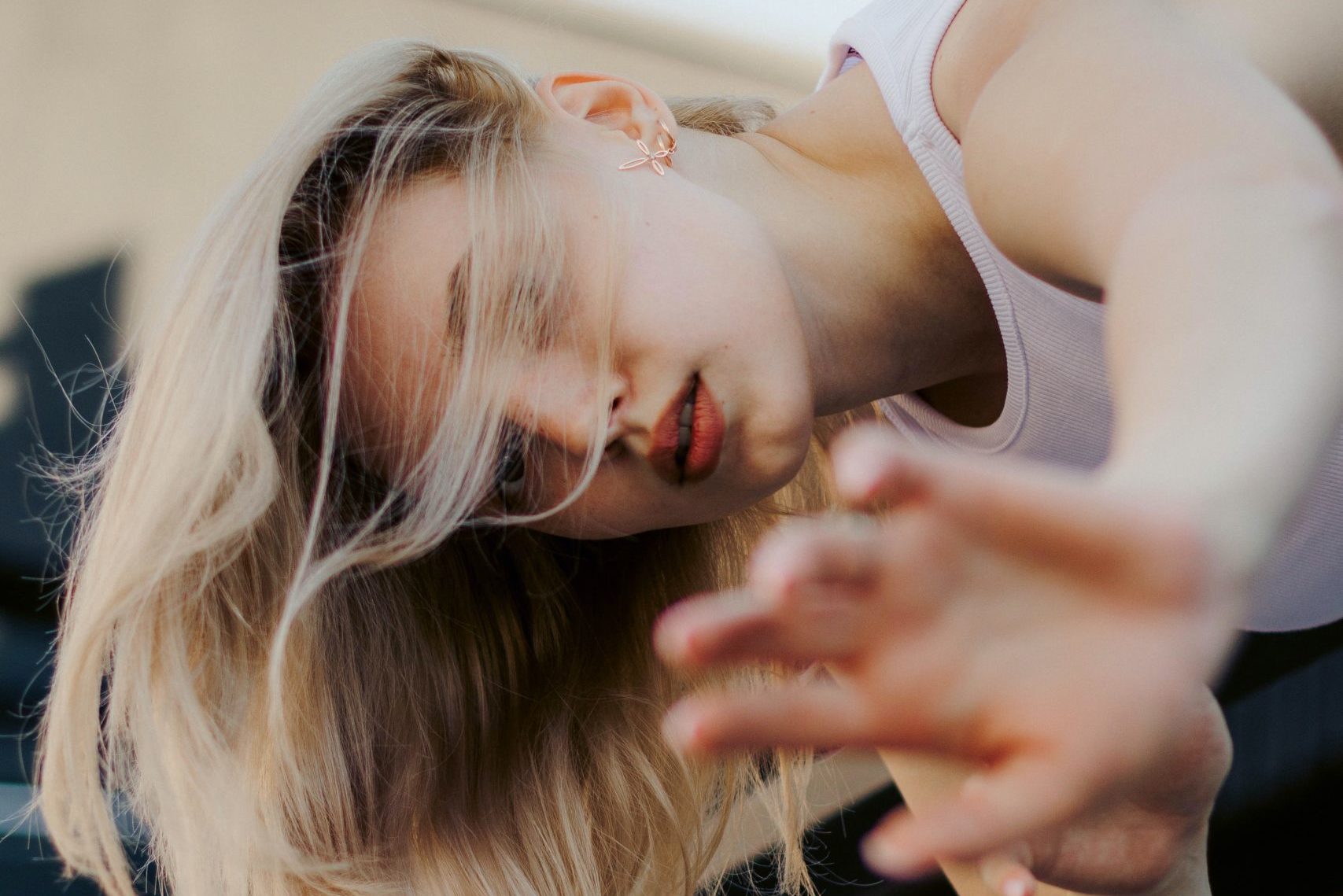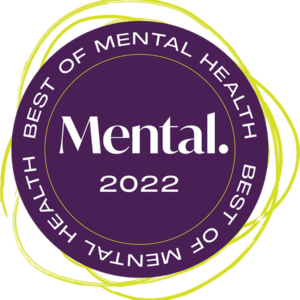“Just calm down”: It may be the most annoying phrase in the history of annoying, pandering, unhelpful, insulting phrases people use when you’re angsting due to, you know, a medical diagnosis. (Imagine telling someone with diabetes to “just produce more insulin”?)
B-T-Dubs, it’s not even physiologically possible to “just calm down” when your body’s already on high alert. And when you have general anxiety disorder or depression, you may very well already be on high alert, because the conditions themselves can trigger your sympathetic nervous system and its fight-or-flight response. You know the feeling: Your pulse quickens, and your blood pressure rises. Your heart beats faster than when you see Harry Styles in sequined pants. Cortisol surges through your bod.
Then, to top it all off, your feelings get invalidated.
With one uttered word—“Relax”—some genius tries to neuter your emotions. And stressing about de-stressing makes you more stressed! In fact, suppressing emotions even increases cardiovascular activation, according to a study published in the Personality and Social Psychology Bulletin.
What a person could say, instead of “calm down” or “relax,” is “get excited.” Whuh what? In a fascinating American Psychological Association study, subjects who told themselves “I am excited” before public speaking “were more persuasive, competent, and relaxed,” according to independent evaluators, than those who said “I am calm.”
The excited bunch also performed better and felt more confident doing other “anxiety-inducing activities,” including difficult math problems and singing karaoke (Lizzo, please!). Because anxiety and excitement are both high-arousal emotions, thinking of anxiety as excitement, the study author theorized, might make it easier to combat than consciously attempting to chill.
In sum, thank you very much, but we won’t be calming down. We’ll be getting excited. And these products are here to help us do it.
All products featured on Mental have been selected independently and editorially. When you buy from our links, we may earn a commission.
Best Bath Oil
This Works Deep Sleep Bath Oil, $70
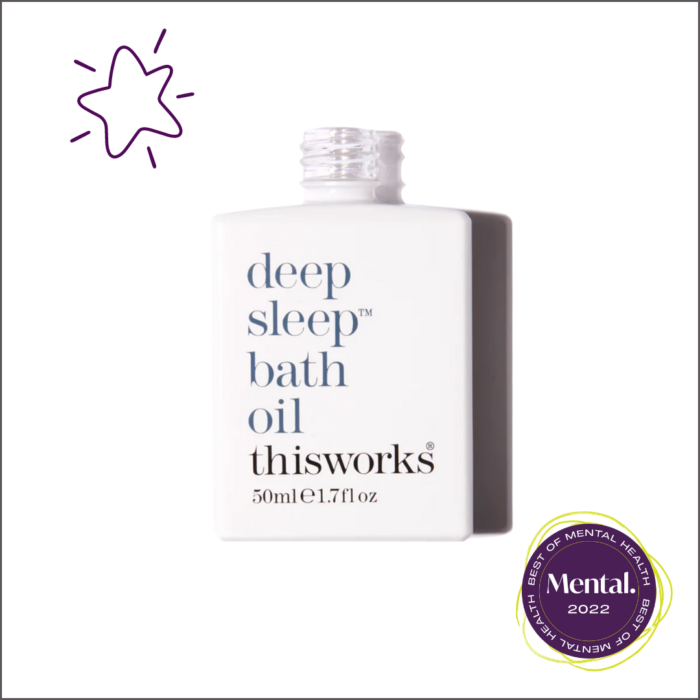
First, let’s get one thing out of the way: This is expensive. But our Bath Products Correspondent—a.k.a. contributing beauty editor with anxiety, who has an Instagram account dedicated to baths—has tried all the tub stuff (epsoms, magnesium-infused salts, every buzzy bath bomb, oil, and gel)…and none have left her as “blissed out” as this. “It makes your limbs feel like they’re 5,000 pounds,” she says, comparing the in-water effect to being under a weighted blanket. “I use it to calm the F down.”
What’s the secret sauce? Six essential oils, three of which—lavender, chamomile, and vetiver—are classic aromatherapy soothers with research backing their calming claims. In one study, the scent of lavender significantly reduced anxiety and showed a nearly 70 percent decrease in cortisol, the stress hormone. Another study, published in Natural Product Research, found that when rats (but still!) inhaled vetiver essential oil for seven minutes, it had the same effect on the amygdala (an area of the brain linked to anxiety) as diazepam, a prescription medication sometimes prescribed for anxiety. Brought together in this potion, the scent is earthy but not herbal, and doesn’t overwhelm with lavender; we call it grounded—you can smell the formula’s ho wood.
If you need more fodder to devote time to a bath, a study published in Evidence-Based Complementary and Alternative Medicine found that people who bathed by tub for two weeks—for just 10 minutes—followed by two weeks of showering were significantly less fatigued and stressed, with lower scores for tension-anxiety, anger, and depression-dejection. Bathe it away, sister!
Best Shower Scent
Self-Care Shower Original Eucalyptus Bundle, $43.98
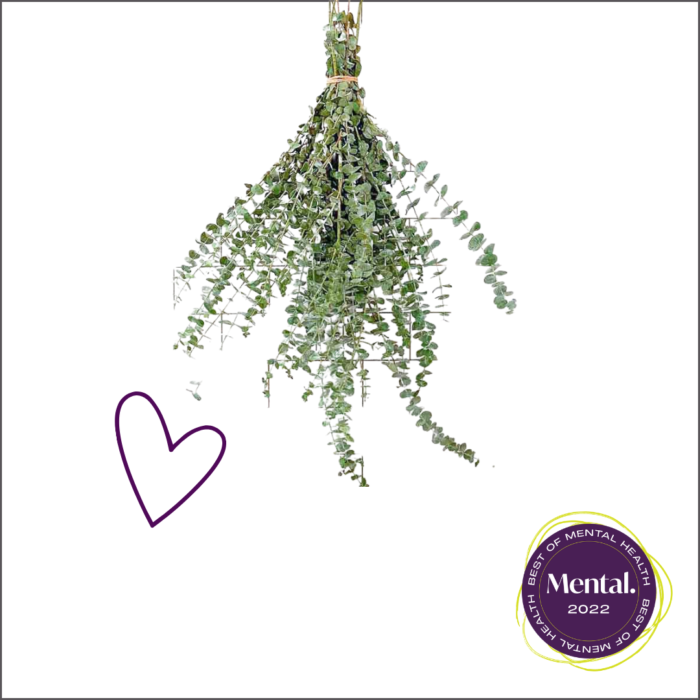
So we just told you how lullifying both lavender and baths are. But if you swear by showers and loathe the big L, there’s another way. “No offense to my grandmother, but that smell makes me feel about 90 years old,” one reader with anxiety tells us (clearly not holding back). Instead, to destress as she cleanses, she hangs eucalyptus branches under her showerhead.
Studies have shown that the essential oil of eucalyptus can lower a person’s blood pressure and salivary cortisol levels. An added benefit to this fragrant flora? “I think it looks pretty,” she says. “I even leave my shower curtain open to see it.” Farmer’s market branches work fine, but we do love Self-Care Shower’s handmade bundles, not just because they’re so chic, but because you can get them one- or two-at-a-time (buying double = a discount) or via a yearly subscription.
Best Tactile Tool
Calm Strips in Follow Your Heart and Inhale, $13.49 each for a 5-pack
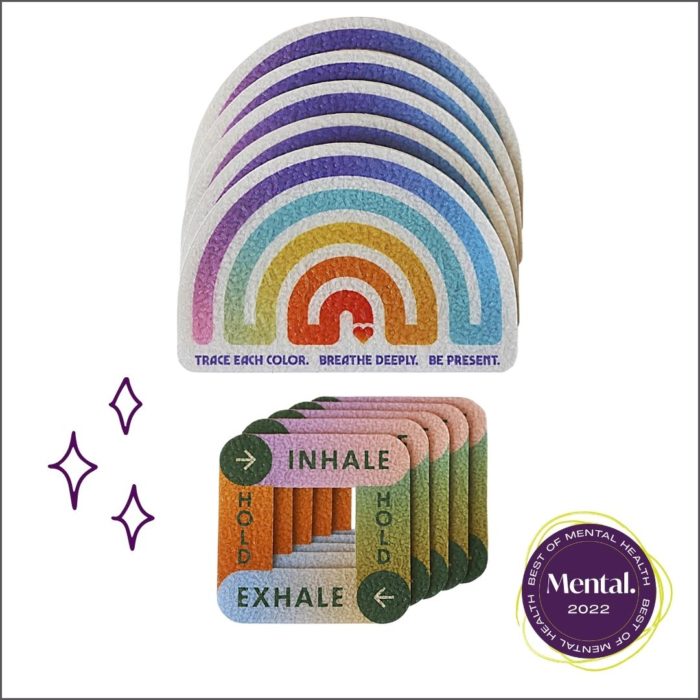
One of those “omg duh” inventions, these stickers, once discovered, simply cannot be unloved. Their origin story: Founder Michael Malkin, who experiences social and situational anxiety, had been wrapping painter’s tape around a finger, at the suggestion of a friend, to soothe angst in stressful work moments. It worked, but he wanted something less gummy, more discreet, more attractive—and voila! A very cute, latex- and residue-free tool was born.
These two sets are our favorite offerings from the brand’s new interactive Calm Breathing collection. Tracing your finger along the bumpy texture gently moves you into a new headspace, and the visual instructions take you through a quick breath exercise. As one mental reader with OCD and anxiety puts it, they’re “a tactile reminder to stay in the moment.” It’s why we’ve currently got them stuck right next to the finger pad on our Mac.
Best Weighted Blanket
Bearaby Cotton Napper, $249
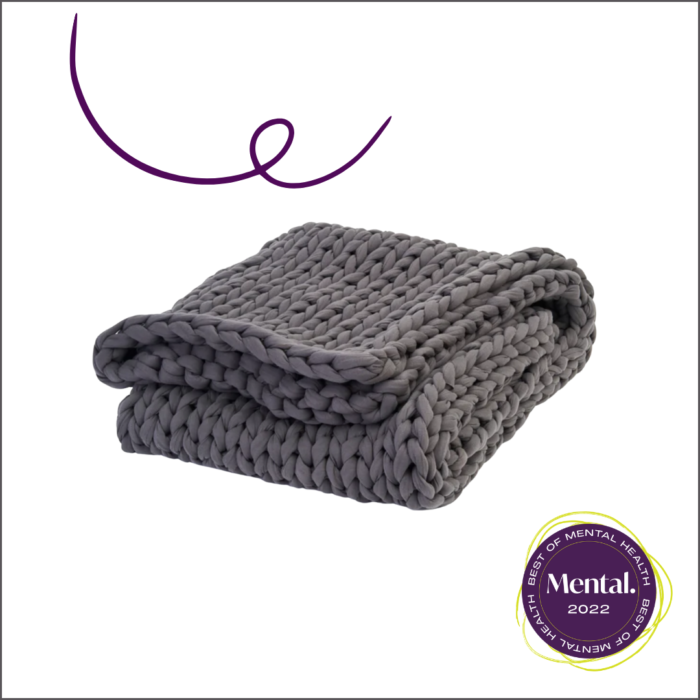
“I feel like a panini being pressed—in a good way,” says one Mental writer. “As soon as I am under my weighted blanket, my shoulders loosen; I’m less anxious. That doesn’t really fit with the sandwich simile, but it’s also true.” Indeed! A 2020 systematic review of eight weighted blanket studies showed that they effectively decreased anxiety. That’s true even in some extreme cases. A 2015 study provided patients hospitalized for a mental health crisis with 30-pound blankets; 60 percent saw “a significant reduction in anxiety.”
This tracks with what our experts have seen with their own patients. “Weighted blankets are a really good emotional regulation piece,” says psychologist Michelle Frank, Psy.D., director of the Enrich Relationship Center of Colorado and author of A Radical Guide for Women with ADHD. “They can be really nice if someone’s feeling flooded by emotion or their anxiety is high.”
These blankets can also temper sensory concerns. “Physiologically, weighted blankets reduce sensory stimulation because you’re under a weight and you’re not distracted by other stimuli,” says Pooja Lakshmin, M.D., clinical assistant professor of psychiatry at the George Washington University School of Medicine and author of Real Self-Care: A Transformative Program For Redefining Wellness. “You fidget less. Your body isn’t as distracted. The pressure can help your autonomic nervous system move toward more of a rest mode.”
If 30 pounds sounds smothering, experts suggest that your weighted blanket be approximately 10 percent of your body weight. (Going a little higher is better than lower.) We’ve tried and loved many blankets, but our new favorite is the 15-pound Bearaby Cotton Napper, which gets its heft from fabric (not microbeads), also allowing it to resemble a stylish knitted throw. (These kettlebell-heavy blankets are already hard enough to fold; they don’t need to be hard to look at.) And because it’s microbead-free, you can clean this blanket at home (vs a laundromat) without worry about melted beads on your dryer walls.
Best Weighted Stuffed Animal
Hugimals, $64
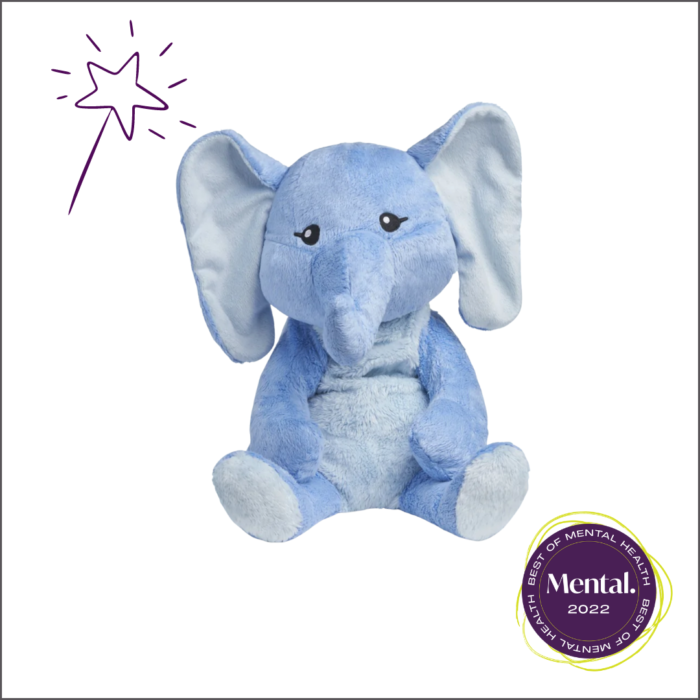
Weighted blanket, but make it an elephant with silky-smooth ears. At 4.5 pounds of adorable calm, Emory the Elephant combines the same weighted-pressure-touch tech as in the blankets, but with the cuddliness of a stuffed animal—and if you think you’re too old for such things, girl, please. A series of studies in Psychological Science found that hugging a stuffed teddy bear can relieve existential fears in people with low self-esteem. Not to mention that hugs lower your levels of cortisol, the stress hormone.
Created by Marina Khidekel—a former health editor at Women’s Health, Cosmopolitan, and Glamour and an early weighted blanket adopter for pacifying her own anxiety and sleep woes—Hugimals are a hit with everyone from toddlers to grannies. They’ve been soothing child and teen victims of traumatic crimes investigated by the FBI, stocked by hospitals to comfort patients, and sent off to universities around the country. “So good for stressful days, calming me down, and making me feel more grounded,” one college student says of her Hugimal.
There are four varieties, and we’re not embarrassed to say we’ve ordered them all: We share Emory with two tween and teen sons, got Charlie the Puppy for a 19-year-old niece, and are holiday-gifting Sam the Sloth and Darby the Bear to a boyfriend’s college-age daughters.
What’s so great about Hugimals? Like the journalist she is, Khidekel left no nuance unexplored. Unlike other weighted stuffies, a Hugimals’ weight doesn’t just sit in the center, but in its arms and legs—so it feels like they’re hugging you back (likely why a video of a toy-fair tester, who said Emory “feels like holding a child,” just went viral on TikTok). They’re washable (first remove the inner pouches), come in zen colors inspired by river stones, and with their minky-plush fabric, you might just be inspired to stroke them like a pet.
Best Skin-Calming Cream
CeraVe Moisturizing Cream, $17.78
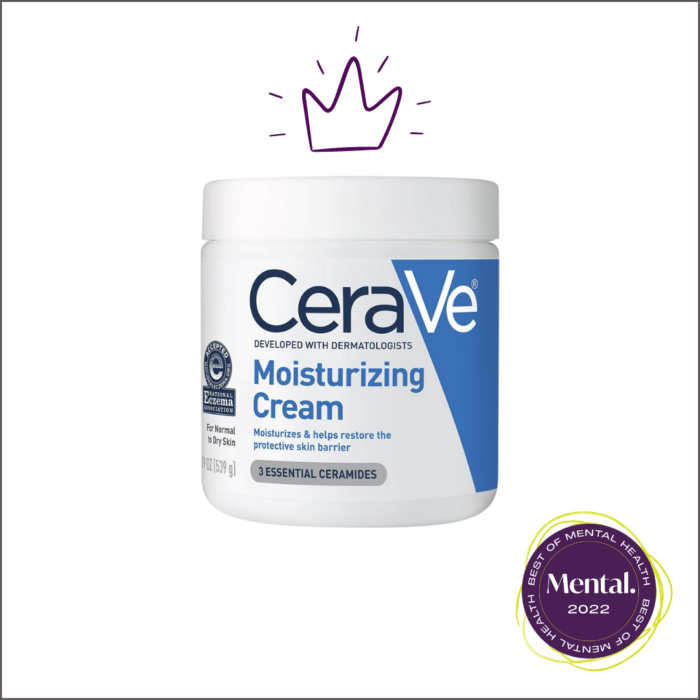 “During a super stressful time of my life, whenever my brain was overtaxed for more than a few days, I’d suddenly have a beard of dry skin,” says a Mental contributor. (Studies have shown that high stress correlates to a number of skin conditions, affecting the skin’s barrier and often leading to dryness and irritation.) “When my usual lightweight face lotion was doing nothing for my flakes, I decided to think outside of the tiny tub and inside of an absolutely huge one—this 19 oz bucket of CeraVe Moisturizing Cream,” she says. “It’s not too heavy or greasy despite being a product I use on my body, too.” The cream is now part of her routine on stressful and stress-free days.
“During a super stressful time of my life, whenever my brain was overtaxed for more than a few days, I’d suddenly have a beard of dry skin,” says a Mental contributor. (Studies have shown that high stress correlates to a number of skin conditions, affecting the skin’s barrier and often leading to dryness and irritation.) “When my usual lightweight face lotion was doing nothing for my flakes, I decided to think outside of the tiny tub and inside of an absolutely huge one—this 19 oz bucket of CeraVe Moisturizing Cream,” she says. “It’s not too heavy or greasy despite being a product I use on my body, too.” The cream is now part of her routine on stressful and stress-free days.
It kicks dry skin’s booty thanks to the brand’s signature ingredient: ceramides, lipids found naturally in the skin. Dermatologists consistently rave about them (and this brand) as a go-to for repairing a hurting barrier and rehydrating touchy skin.
Best Incense
Shoyeido Moss Garden, $12 for 250 sticks
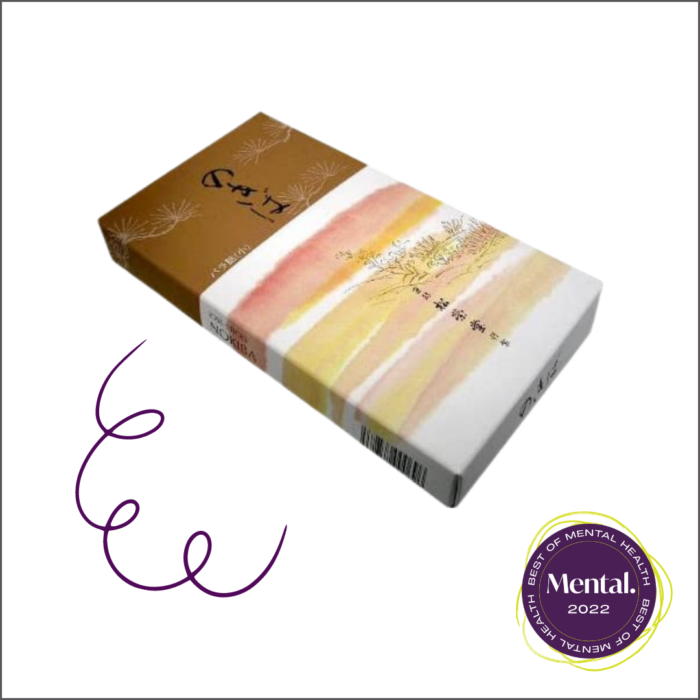
Moss Garden is one of the oldest incense blends from this 300-year-old Kyoto-based house, with warming notes of sandalwood, patchouli, and benzoin. A former yoga teacher of ours likened the scent to “a comforting hug,” an effect that people in aromatherapy circles attribute to the calming properties of all three ingredients. Each stick burns for 50 minutes—just the right amount of time for a self-care wind-down at the end of a long day.
Want more of the most-vetted products and tips for mental health? Sign up for our newsletter and get Mental in your inbox!
Check Out Our Other Best of Mental Health 2022 Categories
I Just Cried (or: I Couldn’t Sleep)
Geek Out on Our Sources
INTRO
Understanding the Stress Response. Harvard Health Publishing. July 6, 2020.
Richards J, Gross J. Composure at Any Cost? The Cognitive Consequences of Emotion Suppression. Personality and Social Psychology Bulletin. August 1999.
Brooks AW. Get Excited: Reappraising Pre-Performance Anxiety as Excitement [PDF]. Journal of Experimental Psychology: General. June 2014.
Getting Excited Helps with Performance Anxiety More Than Trying to Calm Down, Study Finds. American Psychological Association. 2013.
BATH OIL
Hosseini S, Heydari A, Vakili M, et al. Effect of Lavender Essence Inhalation On the Level of Anxiety and Blood Cortisol in Candidates for Open-Heart Surgery. Iranian Journal of Nursing and Midwifery Research. July-August 2016.
Saiyudthong S, Pongmayteegul S, Marsden CA, Phansuwan-Pujito P. Anxiety-Like Behaviour and c-fos Expression in Rats That Inhaled Vetiver Essential Oil. Natural Product Research. January 2, 2015.
Diazepam. MedlinePlus. May 15, 2021.
Goto Y, Hayasaka S, Kurihara S, Nakamura Y. Physical and Mental Effects of Bathing: A Randomized Intervention Study. Evidence-Based Complementary and Alternative Medicine. June 7, 2018.
WEIGHTED BLANKET
Eron K, Kohnert L, Watters A, et al. Weighted Blanket Use: A Systematic Review. American Journal of Occupational Therapy. March-April 2020.
Champagne T, Mullen B, Dickson D, Krishnamurty S. Evaluating the Safety and Effectiveness of the Weighted Blanket with Adults During an Inpatient Mental Health Hospitalization. Occupational Therapy in Mental Health. September 18, 2015.
WEIGHTED STUFFED ANIMAL
Touch May Alleviate Existential Fears for People with Low Self-Esteem. Association for Psychological Science. November 6, 2013.
Dreisoerner A, Junker NM, Schlotz W, et al. Self-Soothing Touch and Being Hugged Reduce Cortisol Responses to Stress: A Randomized Controlled Trial on Stress, Physical Touch, and Social Identity. Comprehensive Psychoneuroendocrinology. October 8, 2021.
SHOWER SCENT
Jun YS, Kang P, Min SS, et al. Effect of eucalyptus Oil Inhalation on Pain and Inflammatory Responses After Total Knee Replacement: A Randomized Clinical Trial. Evidence-Based Complementary and Alternative Medicine. June 18, 2013.
Kim IH, Kim C, Seong K, et al. Essential Oil Inhalation on Blood Pressure and Salivary Cortisol Levels in Prehypertensive and Hypertensive Subjects. Evidence-Based Complementary and Alternative Medicine. November 19, 2012.
SKIN-CALMING CREAM
Garg A, Chren MM, Sands LP, et al. Psychological Stress Perturbs Epidermal Permeability Barrier Homeostasis: Implications for the Pathogenesis of Stress-Associated Skin Disorders. Archives of Dermatology. January 2001.
Alexopoulos A, Chrousos GP. Stress-Related Skin Disorders. Reviews in Endocrine and Metabolic Disorders. September 2016.
